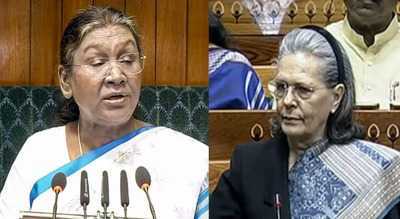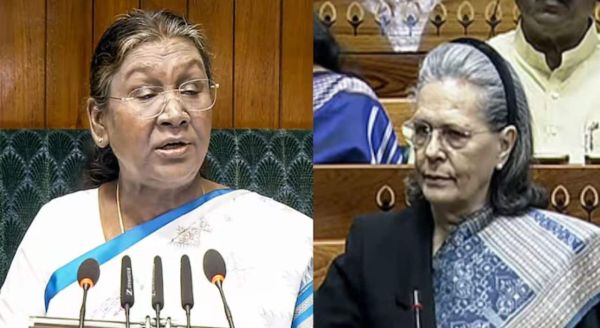

Congress leader Sonia Gandhi’s comment about President Droupadi Murmu, saying she was 'getting very tired' during her 2025 Budget Session speech, has drawn heavy criticism. Gandhi referred to the President as 'the poor lady,' which many deemed disrespectful.
The Rashtrapati Bhavan quickly responded, calling the remark damaging to the dignity of the President’s office. They clarified that President Murmu was not fatigued and is fully committed to advocating for marginalized communities, including women and farmers.
Prime Minister Modi also condemned Gandhi's words, claiming they insulted the President and the tribal community. He said, "Droupadi Murmu ji has come here from a tribal family. Her mother tongue is not Hindi, it is Odia. She inspired the Parliament today in a wonderful way, gave a speech. But the royal family of Congress has started insulting her. A member of the royal family said that the tribal daughter gave a boring speech. Another member went one step further and called the President a poor thing. They find the speech of a tribal daughter boring. This is an insult to the 10 crore tribal brothers and sisters of the country. This is an insult to every poor person of the country...They like abusing people, defaming India in foreign countries and talking about urban Naxals."
The controversy has reignited questions about the Congress party's past treatment of tribal leaders, with critics pointing to a history of dismissive remarks.
The controversy has reignited discussions about the Congress party's historical approach to tribal communities. Many argue that the party has a record of neglecting the interests and achievements of Scheduled Tribes (ST) in India. They point to past instances where Congress leaders have made remarks perceived as disrespectful towards tribal individuals in prominent positions.
In 2022, Congress MP Adhir Ranjan Chowdhury faced backlash for calling President Murmu 'Rashtrapatni,' a term seen as disrespectful and sexist. Gandhi's latest comment has been viewed by some as reflecting an elitist mindset, struggling to accept a tribal woman in the highest office, which challenges traditional political hierarchies.